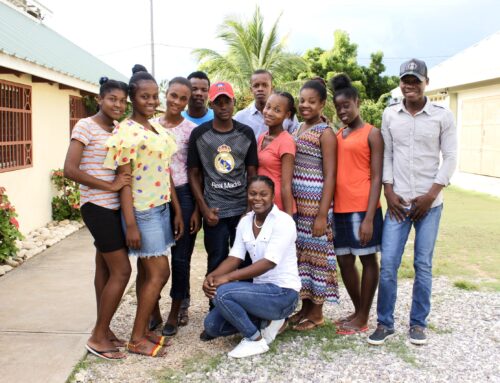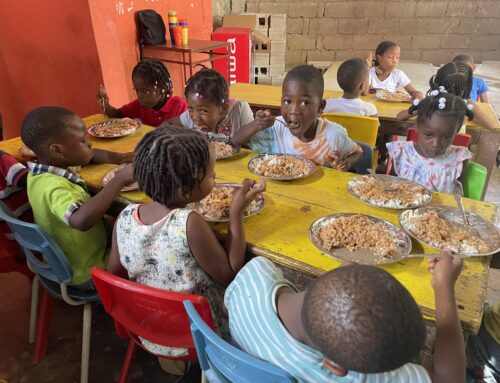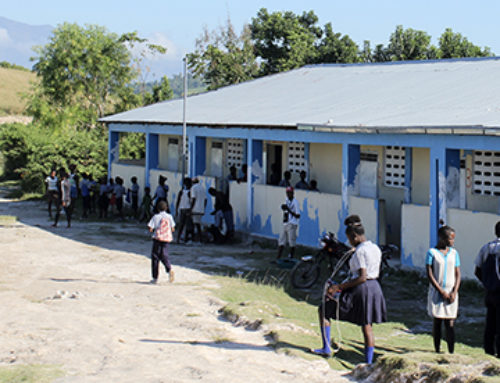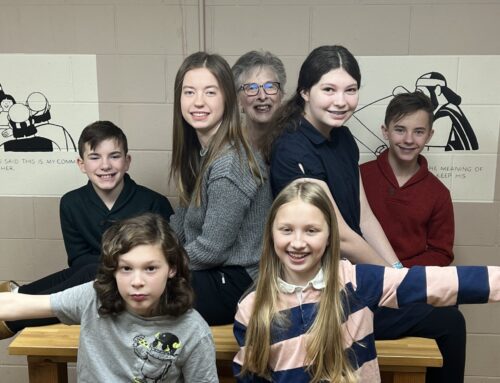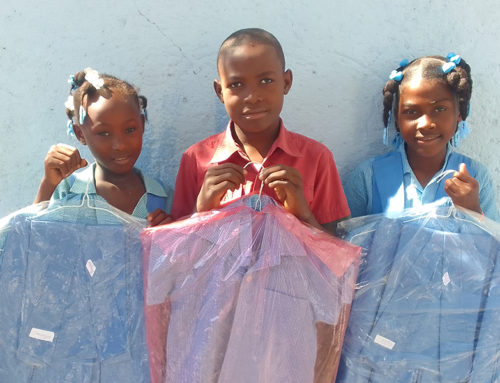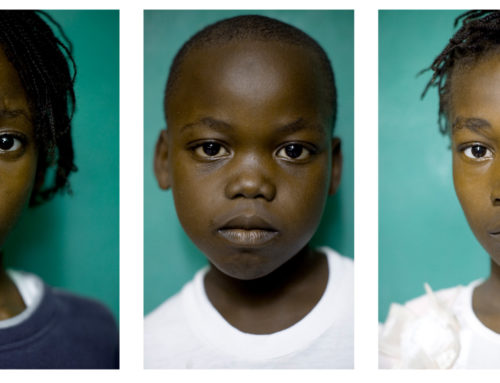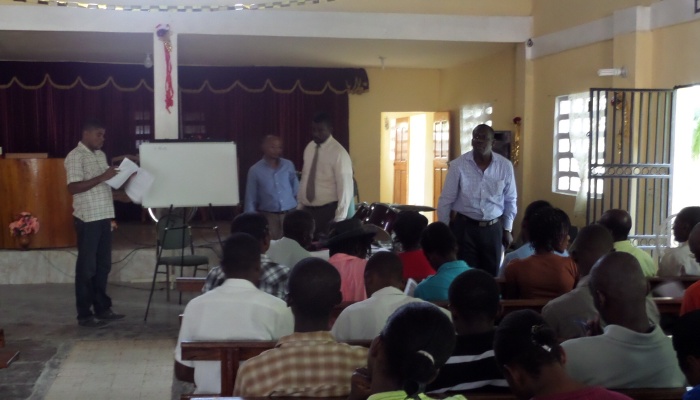
By Gardy St Paulin, National coordinator of Church Mobilization
Bringing people together to talk about the restavek system is not easy but it is an important step towards acknowledging that this system is hurtful to children and more broadly to our society. In Haiti, almost everyone is affected by this system, either personally as former children in restavek, as host parent, or as a mere witness, as everyone knows of a situation where a child is in restavek in the home of a relative, a neighbor…
Children in restavek are overwhelmingly from rural provinces and are “given” by poor parents to relatives or strangers in cities in the hope for a better life. In reality, they become slaves, performing menial tasks for very long hours for no pay. Most often, they are neglected with little food or care, impeded to attend school and in some cases they are abused.
Working relentlessly to change mentalities
At Restavek Freedom, we work hard to bring this system down. To achieve this goal we sensitize people on the issue and seed change in their perception to ensure long term shift in mentalities and behaviors towards children in restavek. This is done through national radio and TV programs, church’s sermons, and trainings.
Every month, Restavek Freedom conducts several trainings in different regions – ensuring national coverage. During these trainings, participants have the opportunity to share their experience regarding the issue of restavek and to testify of the benefits of the trainings in their personal lives and that of their communities. After returning home, they spread the message to, in turn, train their friends, church members, colleagues, etc. on the impact that such a system has had on Haiti for decades.
We can measure the progress achieved in the past five years. Back then, most Haitians did not pay attention to the issue, they were accustomed to seeing these kids working and would not question it. Today, Restavek Freedom’s awareness raising campaign is bearing fruits as the issue is making its way onto the agenda and people do not automatically turn a blind eye to it anymore.
“I will tell those kids I am sorry”
During a training in the northern department, a lady made the following commitment: “I am the owner of a bakery and I have children that live with me to help me operate it when I need to make bread, cookies, etc. I used to be unkind with them by making them work hard, devalue them and even curse them for no reason. I have to tell that after this training I realized that I was doing injustice to these children. So I would like to make this public decision: when I get back home today, I will tell these kids I am sorry for being so rude and harsh on them.”
Here is what the chief of a communal section in Nippes said after attending our training: “Before this training I didn’t see anything bad with the fact that a child leaves his/her parents and goes to live with a stranger. But I now perceive it as a mistake; because I was a restavek myself when I was a child. I was away from my mother and from that experience I can confirm that the life of a restavek is really tough.”
“Today’s children are tomorrow’s citizens”
In the upper Central Plateau, the Police department Child protection unit reported a very positive evolution: “I would like to let you know that since RF has been working, I have received less complaint about children being mistreated. Please continue with your wonderful movement on behalf of mistreated kids. I want to work and collaborate with you so that together we can protect the rights of the children, for children today are citizens tomorrow.”
Of course, there are still challenges to face. Some people are slow to change and many parents that are sending their kids to restavek do so because of poverty. In other words, they sometimes expect further assistance from our coordinators whether it is to help send their kids to school or to help feed them regularly.
But challenges should not deter us from continuing the work towards ending the restavek system. The testimonies are encouragements to us. We are making impact! We are changing lives. Therefore, we can hope for a better Haiti where children are loved and considered all equal.
You too can join this fight to end child slavery in Haiti! Visit restavekfreedom.org to learn how


